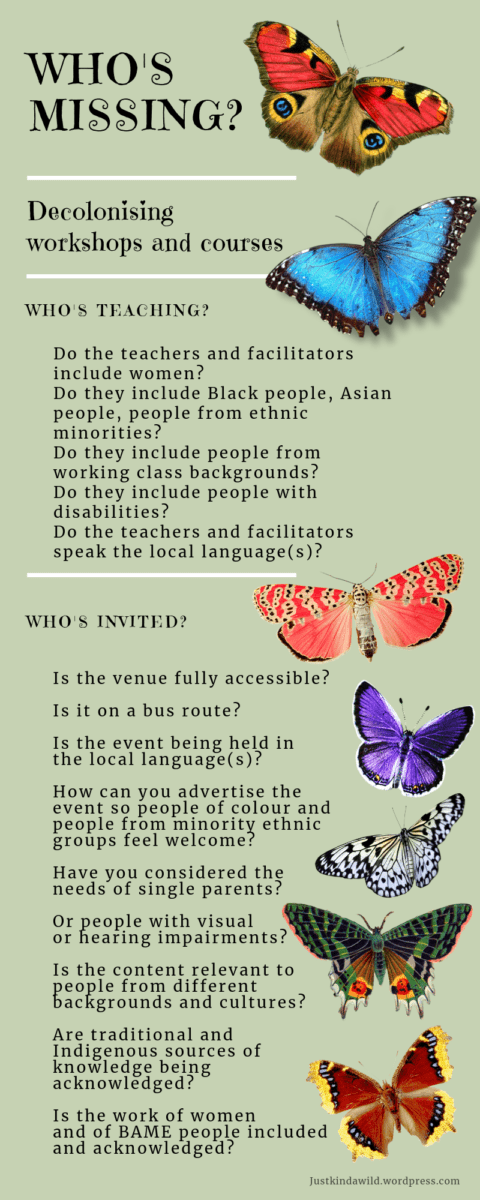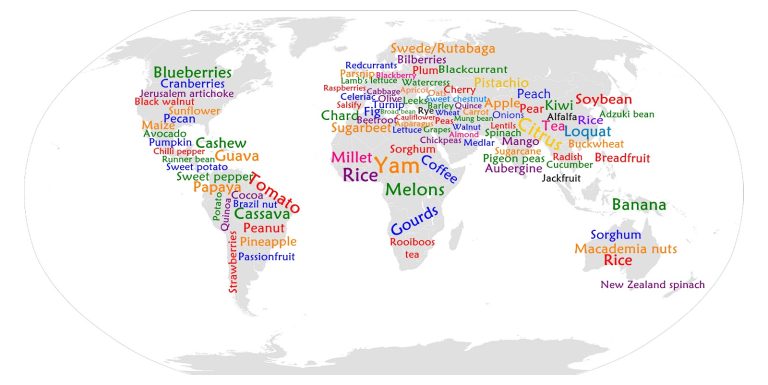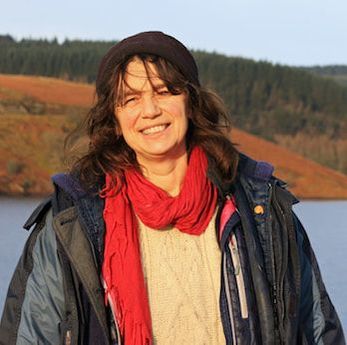What needs to be done for decolonising learning?
To attain knowledge, add things every day.
To attain wisdom, remove things every day. — Lao Tzu.
How we view the world stems largely from how we learn to see the world, so our approach to learning plays a significant role. But if the education system is one of the human systems we have created within our flawed society, and if the teachers have themselves been educated within this system, how do we effect change? How do we move from separated, pigeon-holed subjects, including the separation of environmental issues from social issues, to an interconnected worldview?

Jessica Ball describes a very different approach to learning where students and Indigenous community Elders co-create the curriculum as the course develops. Indigenous knowledge is brought into the process of teaching and learning by community Elders, and this is considered alongside Western theory, research, and practice. Where the discussion goes is different every year; there are no set goalposts. This website illustrates the breadth and depth of knowledge that can be gathered when different ways of knowing are acknowledged and valued.
But even when it’s clear a collaborative approach works, creating a participatory process can be challenging because it is so ingrained in us to have goals to aim for. For both students and teachers, there can be a tension between a co-created plan and the perceived need for a definite end-point.
When I was planning a community food-growing project, I struggled with this for some time. Before the project had even started, I had come up with an idea for growing food on contaminated land. It was a clever solution to a difficult problem, and I was quite proud of it. But I also realised the imposition of solutions from outside was a familiar tale in my area, and these grand projects rarely inspired (or even involved) those living locally.
Although it wasn’t easy to let go of my idea, I found that not having a goal to work towards opened up the plan to different ideas and perspectives. It gradually it dawned on me that this included thinking about and questioning all sorts of things to do with food, so the project became more about the people involved, and how we connect with each other and with the many aspects of our habitat than about what we grow, and how or where we grow it.
But if there isn’t a goal to work towards, where do we start?
Theatre of the Oppressed carefully sets the scene through games and activities that highlight the effects of oppression, before letting the participants decide what they want to do. This is the opposite of having learning objectives to achieve. It also plays with the ‘start where people are’ maxim by ensuring everyone involved starts with an awareness of each other and an awareness of shared and different oppressions, and their emotional effect.
This seems to lend itself to a different approach to learning. The ethics and principles of permaculture provide a useful gateway beyond which paths can be followed or made to permaculture’s many applications, not just gardening. The ethics are hard to argue with; they get down to the nitty gritty of what’s important in life. By framing the starting point with shared values, rather than pointing to goalposts and achievements that perhaps not everyone is interested in, can we create a space where learning can be about change and transformation within ourselves?
Professor Marie Battiste, a Mi’kmaq scholar, knowledge keeper and educator, whose book ‘Decolonizing Education’ is subtitled “Nourishing the Learning Spirit”, describes Indigenous pedagogy as valuing people’s abilities to learn independently through observing, listening and participating, with minimal instruction. Perhaps a key role of permaculture teachers is to help students to un-learn assumptions about how learning happens, and what it’s for.
Paulo Freire argued in Pedagogy of the Oppressed that learning to question is fundamental to learning. This fits with permaculture’s starting point of observation, but challenges us to question even this. Are we framing and limiting our observations? What are we not seeing/hearing/smelling? What do other people and other beings see or feel from their different perspectives?
It seems to me that decolonising permaculture pedagogy means rethinking the purpose and nature of learning. It means challenging and un-learning the dominant approach to education and to sustainability. Because in the West we grow up surrounded by and inhaling a capitalist worldview, learning that enables change and transformation involves a paradigm change. As this requires reconnecting at a personal level with the world, human and otherwise, it is not something that can be taught conventionally. It needs a sensitive, facilitative approach that respects and includes not just different ways of learning but also different ways of knowing.
Because perhaps it isn’t nature that needs rewilding, but us.
If permaculture is honest about its roots in traditional and Indigenous knowledge, then this reconnecting of ourselves with the ecosystems we inhabit, and are an integral part of, is a place where a radical, decolonised permaculture pedagogy can help.
How we do this is something I believe we need to talk about and it could take some time to work out. Here are some questions which I hope contribute a useful starter or addition to the process:




